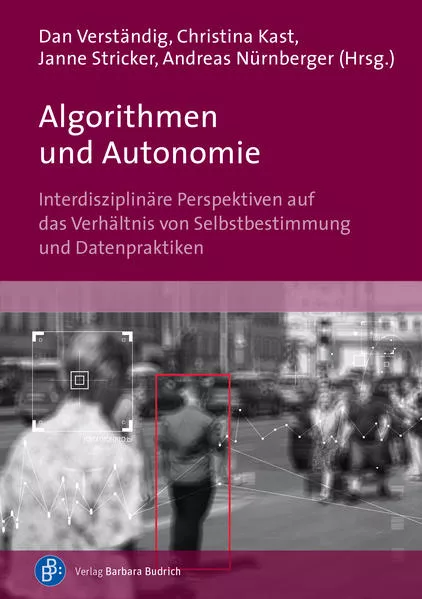
- Publikationen ca: 2
- Fragen & Antworten
Dan Verständig
Dr. Christina Kast, wiss. Mitarbeiterin, Fakultät für Humanwissenschaften, Bereich Philosophie, Otto-von-Guericke-Universität Magdeburg
Janne Stricker, M.A., wiss. Mitarbeiterin, Fachbereich Medienpädagogik, Universität Bielefeld
Prof. Dr. Andreas Nürnberger, Professor für Data and Knowledge Engineering, Fakultät für Informatik, Institut für Technische und Betriebliche Informationssysteme, Otto-von-Guericke-Universität Magdeburg
Algorithmen und Autonomie
We live in a world of algorithmic sorting and decision-making. Mathematical models curate our social relationships, influence our elections and even decide whether we should go to prison or not. But how much do we really know about code, algorithmic structures and how they work? This book turns to questions of autonomy in the digital age from an interdisciplinary perspective, combining contributions from philosophy, education and cultural studies with computer science.
Algorithmen und Autonomie
We live in a world of algorithmic sorting and decision-making. Mathematical models curate our social relationships, influence our elections and even decide whether we should go to prison or not. But how much do we really know about code, algorithmic structures and how they work? This book turns to questions of autonomy in the digital age from an interdisciplinary perspective, combining contributions from philosophy, education and cultural studies with computer science.

